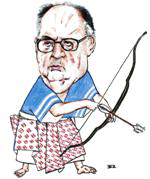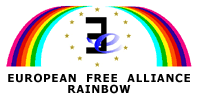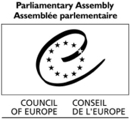�� �������� ������������� ��� ��������� ��� ������� (����) ���������� ���, ���� 18 �������� 2007, ��� ��������� ��� �������, ����� ���������� �������� ��� �� ��������� ���������� ���� ������ ��� ������ ����� ���� ������. ������������� ������ ��� ��� ������.
(http://assembly.coe.int/WorkingDocs/Doc07/edoc11214add.htm#Greece)��� �������� ��� ���������� ���������� ����������� ���� ������ �� ����� ����� �������� (����� ��������� �Greece� ���� ����������� �����������
http://assembly.coe.int/ Documents/WorkingDocs/Doc07/EDOC11214.htm,
http://assembly.coe.int/WorkingDocs/Doc07/EDOC11202.htm ���
http://assembly.coe.int/workingdocs/doc07/edoc11203.htm).
���������, ����������� ��� ��������� ����������, ��� ��� ��� ��������� ��� ����������� ���� ������ (�� �������� ��� ���� ������) ��� ��� ��� �� ���������� ���������� ���� ������. ���������, �� �������� ����� ��� ����������� ����������� �������� ���� ���� �������� ������ ��� �����������. �� ��� ���� ������� ��� �� ������������ ��� ��������� ������ ����������.
�� ���� ����������� ��� ���� ��� ���� �� ������� ������ ��� ��������� ��� (�� ����� �� ������� ���) ��� ��������� ��� ����, ������ ��� ������������ ������������� ���� ��� ������� ������: �� ��������� ����������, �� �������� �������� ���� ������������� ���� �������������� ���� ����������, ������ ��� ������ ����� ��� ������� ���������� ����� ��� ��� ���������� ��� ��. � ���� ������� ��� ���� �� ���� ���� � ������������� ������� ��� ����� ��� �������� ������ ��� ������� ��������, ��� ���������������.
--------------------------------------------------------------------

http://tovima.dolnet.gr/print_article.php?e=B&f=15044&m=A48&aa=1

������� �� ����� ��� ����� ���, ������ �� ������ ����� ��� ��� �������� ��������� ��� ����� ���� �������������. � �. �. �������� ������� ����� ����� �� ��� ������, ���� ��� ������������ ��������� ����� ������� ���� ���... ������� ����. ������� ���������, � �. �������� ������� ��� �� ���� �� ��������� ��� ��� ��������� �������� (��� ��� �� �������� ��������� ����� �� ����������� �� ��� ����� ��� ������� ���!). ��� �� ��������� ��� �� ������ ��� ������� ���������, ����� ��� ���������� ��� �������, �������� �������, ��� ������� �������. �� ���������, ������� ����, ����� ��� ���� ��� �������������, �� ��. ����. ������������, ����� �������, �. ������������, �� ������ ����� ��������, ���� ������� �.�., ��������� ��� ����������� ������ ��� ����������� ��� ��� ������� ��� ������������ ������ ��������� � �������� �����...
��� ������ �������� ���� �������� ����������� ���������, � �. ���� ����������, � ������ �������� ������� ���� ��� ���������� ��� ����������� ����������� ��� ����������� ����������� ���� ������. ��� ������� ������������ ����������� ��� ������������������� ���������. � �. �������� ��������� ������ ���� ���� ������. �� �� ����� ���� ��� �������� � ����� ������������� ��� �� ��� ��� ��� ������ ����� �� ����������� �� ������� ��������� �� ���� ����������� ��� ������� �������� �����, ��� ����� ���� ��� �����������, ��������� ��� ���������� ���� ���������� �������� ��� ������ ���� ���������� ������������, �� ����� ��� �������� ���. ��� ���� �� ��� ��: �������� ��� �� ��� ����������� ��� ����� ��� ��� ������ ��� ��������� �� �� ������� ���� ������� �� ��������� �����. � ��������� ��� �� ��� ������� ����������� �� ����... ������� ��� ������. ��� ���� ��� ����� ���� ��� � ��������� ��� ����� �. ����� �������, � ������ ������� ��� ��� ���� ������� �������� �� �������� ��� ���������!
�� ����� ��� �. �������� ���� ��������� ���� ����������, ��' ���� ��� � �������� ���������� ��� �� ������� (����) �� ��������� ��� ������� �� ������� ����. ��� ��� �� ������ ���� ��� ��� ���������� ����� ���������;� ����� ���� ��� ����. ����� ��������! ������ ���� ������������ ��� ���� ��� �� ��� ������ ���...� (���� �� ����� ������� ���� �������� ������������ ���������). ��������� �� ������ ����� �������� ��� ���� � ���� ��� ������ ��� ������ ������� ��� �������� ����� �������� ��� ������ ��� ������ ��� ����...�!
�� ����, 22/04/2007 , ���.: A48
������� ������: B15044A481
ID: 285447
--------------------------------------------------------------------

����� ��� ���������� ��������� ���������- ��������� �������� ����� (EFA-EPP)
����� ��� ������������� ������ ��� ���������� ��������� (FUEN)
��. �������� 11 �.�. 53100 �.�. 51 ���./fax 0030 23850 46548
www.florina.org e-mail rainbow@florina.org
������ �����
�������/Lerin 18/04/2007
������� ���������� ��� ��������� ��� ������� ������� �� �� ��������� ��� ������� ����������� �����������.
���� 17 �������� ��� ��� ������� ��� ���������������� ���������� ��� ���������� ��� ������� ����� ���� ������� ����������* ������� �� �� ��������� ��� ������� ����������� ����������� ���� ������.
� ������� ���������� ��� ��������� ��������� ��� ���������� ��� ������� ������ ��� ����������� ��� �������� �����, ������������� ��� ������ ������������ ��� �������� ��� ������� ���������� ��� ���������������� ����� ��� ������ ��� �����������.
�� ��������� ��� ���������� ��� ������� ������������:
1) �� ������������ ��������� ��� ����� �������� ���� ��� ��� ������ ���������� ��� ���������� ����������� ��� ����������� ������� ��� ��������� ����������� ���� ������ ������.
2) � ������ �������� �� ����������� ��� ������ ��� ����������� ������� ��� ��������� �����������. �� ������������ ����� ����������� ���������� ���� ������ ��������� ��� �� �������� ����������, ��������� ����� ��� ��� ����������� �� ���� ���������� ����������� ��� �����������.
3) ������ ��� ������� ������������� ��������� ��� ������ ������ � ���������� ������ ��� ����� ������������� ��� �� ������ ��� ���� �� ���� ��� ����������� ��������� ����������� ��� ������������ �� �������� ���� �������� ��� ����������� ������� ��� ������� ��� ��������� ������������� ����������.
4) �� 1990 ����� ������� ��������� �� ������� �� ������������ �������� �� ��� �������� ������ ����������� ����������� ���� �������/Lerin. �� �������� ���������� ��������� �� ������������� ��� ������. ���� ��� ��������� ��� ������� ����� ���� ������ � ������� ����������� ��� ��������� ���������� ���������� �����������.
5) �� 1998 �� ���������� ������� ��������� ��� ������������ �� ����� 11 ��� ���������� �������� ���������� ����������� (������� ������������ ��� ����� �������� ������� ECtHR, 57/1997/841/8107). ������ ��� ���� ������ ���� ��� �������, � ������ ����������� ����������� ��� ���� �������� � ������������. ��������� �������� ��� ���������� ��� �������� ����� ������ ���������� ��� �� �������� ����������.
6) ���� ��� �������� ��� �������� ������� ���� ������ (1946 -1949) �������� ������� ������� ������������ �� ����. ���� �� ���� ��� ������� ���� ���� ������������ ��� ������ �������� ��� �������� ���������� ��� ��� ��������� ����. �� 1982 ��� �� 1985 � �������� ��������� ������ ������ �� ���� ������� ��� ���������� ���� � �������� ��� ����������� ��� ��� ��� ���������� ��� ����� ��� ���� �������� �� �����. ���� �� ������ ��������� ��������� ����������� ��� ����������. ����� �� ����� ������������ �� ������ �� ����� �� ����.
7) ����������� ��� ������ �������� ��� ���������� ��� ������� �� ��������� ���� �� ��������������� ������ ��� ��� ����������� ����������� ��� ���������� ����������� ������� ��� ���������� ������ ��� �������� ���������� ��� ������� ������� ���� �� �������� ��� ������ �� ����� � ���������� �� ����������� ��� ����������� �� ���������� ������� ���.
8) � ������ �������� �� ���������� �� ������� ������� ��� ��� ��������� ��� ������� ����������� ����� ��� ��� ��������� ����� ��� ����������� �������. ������ � ���� ��� ����� ������� �� ����� ����� �����������, ��� ���� �������� ��� ���������� ��� ������� ��� ����� ����� �����, ���� ��� �������� ��� ��������� ��� �������� ����� ����� ��� ������� �������� ��� ����.
�� ������������:
* JURGENS Erik, Netherlands, SOC
* ALMA'SSY Korne'l, Hungary, EPP/CD
* BOUSAKLA Mimount, Belgium, SOC
* CILEVIC(S Boriss, Latvia, SOC
* E'KES Jo'zsef, Hungary, EPP/CD
* GROSS Andreas, Switzerland, SOC
* HAJIYEV Sabir, Azerbaijan, SOC
* KELEMEN Andra's, Hungary, EPP/CD
* KOZMA Jo'zsef, Hungary, SOC
* LAMBERT, Geert, Belgium, SOC
* LINDBLAD, Go"ran, Sweden, EPP/CD
* Lord RUSSELL-JOHNSTON, United Kingdom, ALDE
* POPESCU, Ivan, Ukraine, SOC
* SZABO', Zolta'n, Hungary, SOC
* Van den BRANDE Luc, Belgium, EPP/CD
�� ������� ���� ������� ��� �������� ������� ���������� �� ���������� �� ���� ���������� ������ ����� ������� ����� ����� ��� ������������ �� ��� ��������� �������� �������� � ��������� �������� ����� (�.�.�. � �.�.�) ��� ��� ������������ ����� ��� ��������� ��� ������� (�.�.�.�.).
�� ������� �����
� ��� ����������� ��������� ��� �������� ����������.
http://assembly.coe.int/WorkingDocs/Doc07/EDOC11249.htm
Doc. 11249
17 April 2007
Plight of the ethnic Macedonian national minority of northern Greece
Motion for a resolution
presented by Mr Jurgens and others
This motion has not been discussed in the Assembly and commits only the members who have signed it |
1. The undersigned are deeply concerned about the high number of sustained human rights violations against the Macedonian ethnic and linguistic minority of northern Greece.
2. The Greek state refuses to recognise the existence of a Macedonian ethnic or linguistic minority within its borders. Government authorities have and continue to systematically exclude ethnic Macedonians from the political process, refusing even to acknowledge correspondence from the political representatives of the minority.
3. Despite the existence of a Macedonian speaking population in northern Greece the Macedonian language is not recognised by the Greek state and thus members the Macedonian speaking minority do not enjoy the right to learn the Macedonian language within the framework of the Greek education system.
4. In 1990, a group of citizens decided to form a non-profit-making association called the �Home of Macedonian Culture� in the town of Florina/Lerin. However Greek courts rejected the application. After exhausting all domestic remedies, the case was appealed to the European Court of Human Rights. In 1998, the court ruled on the matter and unanimously found that there was a violation of Article 11 of the European Convention on Human Rights (see Sidiropoulos and Others vs. Greece, ECtHR, 57/1997/841/8107). Deplorably however, almost ten years following this decision the �Home of Macedonian Culture� remains unregistered. Subsequent applications to register the association have been also been rejected by Greek courts.
5. During the Civil War in Greece (1946-1949) thousands of Greek citizens fled the country. Following the end of the war, all those who left Greece during this period were stripped of their Greek citizenship and property. In 1982 and 1985, the Greek government passed laws which restores citizenship and property rights to such individuals provided that they are �Greeks by genus�. Thus ethnic Macedonians and others were deliberately excluded. These laws are still in force today.
6. We suggest that the Legal Committee is required to make a Report of the cases of human rights violations against the Macedonian ethnic and linguistic minority of northern Greece during which the opportunity is provided for a number of representatives of this minority to bear witness in a hearing.
7. Greece has refused to ratify the Framework Convention on the Protection of National Minorities and the European Charter for Minority Languages. However the undersigned note the obligations of Greece are not only those in the various conventions of the Council of Europe to which it is a party, but also include various Conventions and Covenants of the United Nations and a number of legally binding texts of the OSCE.
Signed 1:
- JURGENS Erik, Netherlands, SOC
- ALMASSY Kornel, Hungary, EPP/CD
- BOUSAKLA Mimount, Belgium, SOC
- CILEVICS Boriss, Latvia, SOC
- EKES Jozsef, Hungary, EPP/CD
- GROSS Andreas, Switzerland, SOC
- HAJIYEV Sabir, Azerbaijan, SOC
- KELEMEN Andras, Hungary, EPP/CD
- KOZMA Jozsef, Hungary, SOC
- LAMBERT, Geert, Belgium, SOC
- LINDBLAD, Goran, Sweden, EPP/CD
- Lord RUSSELL-JOHNSTON, United Kingdom, ALDE
- POPESCU, Ivan, Ukraine, SOC
- SZABO, Zoltan, Hungary, SOC
- Van den BRANDE Luc, Belgium, EPP/CD
----------------------------------------------------------------
1 SOC: Socialist Group
EPP/CD: Group of the European People�s Party
ALDE: Alliance of Liberals and Democrats for Europe
EDG: European Democratic Group
UEL: Group of the Unified European Left
NR: not registered in a group
----------------------------------------------------------------
����� ��� ���������� ��������� ���������- ��������� �������� ����� (EFA-EPP)
����� ��� ������������� ������ ��� ���������� ��������� (FUEN)
��. �������� 11 �.�. 53100 �.�. 51 ���./fax 0030 23850 46548
www.florina.org e-mail rainbow@florina.org
������ �����
�������/ Lerin 23.04.2007
����������� �������������� �������� ����� �� ������ ��� ���������� ��� �������.
������������� ��� �������� ����� ���� �� �������� ��� �������� ��� ������� ��� ���������� ��� ������� (����������� 16-20 ��������), �������������� ����������� �� ������ ��� ����������, ��������� ��� �������� ���������� ��� ����������� �����������.
������������ �� �� ���������� ��� �������� ��� ������ ��� ������������� ��� ����������� ������� ��� ���������� ��� �������, ��� ���������� ��� ���-��������� ��� �� ���������� ��� ����������� Boris Civilics, ��� �������� ��� �������� ��������� ��� ��������� ��� ���������� ����������� ���������� ����������� �.Fredric Sundberg, ��� �. Antti Korkakievi ��� ������� ���������� ���������� �����������, ��� ����������� ��� �������� ������� ��� �� ��������� ��� ����������� ��� ������� ����������� ��� ��� �������� ��� ���������� ��� ������� ��� �� ��������� ���������� �. Thomas Hammarberg.
�� ���������� ��� �������� ����� ����� ��� �������� �� ������������ ��� ��������� �� ��� ����� �� ���������� ���������� ���� ������ ���� ��� �� ���������� �������� ��� ���� ��� �� ��� ����� �� ��������� ��� ���������� ����������.
� ������������� ��� �������� ����������� ������ ��� ��������� ������� ��� �� �������� �������� �� ��� ���������� ��� ��������� �������������� ��� ��������� ��� ������� �������� ��� ���� ����������� �. ���� ������������� ��� �� ����� ��� ��������� �������������� �������� ��� ����� �. ���� ������.
�� ������� �����
Doc. 11261 revised
19 April 2007
Minority protection in Europe: best practices and deficiencies in implementation of common standards
http://assembly.coe.int/WorkingDocs/Doc07/EDOC11261.htm
Motion for a recommendation
presented by Mr Cilevics and others
This motion has not been discussed in the Assembly and commits only the members who have signed it |
1. Respect for cultural and linguistic diversity and protection of minorities in Europe has improved during the last decade. Due mainly to the adoption of the instruments of the Council of Europe, ie the legally binding Framework Convention for the Protection of National Minorities and the European Charter for Regional or Minority Languages, minority rights have been moved from the field of political rhetoric and manipulation to the area of practical policies and legally-based monitoring.
2. Unfortunately, the two instruments mentioned above have not yet become universally accepted standards throughout Europe, as some Council of Europe member states have not yet ratified them. This problem was addressed by the Assembly in its recent Recommendation 1766 (2006).
3. The Framework Convention is �a document of principles�, and practical methods of implementing these principles vary broadly from country to country. In the course of monitoring compliance of the state parties with the provisions of the Framework Convention, its Advisory Committee has accumulated an extensive array of relevant data.
4. Both effective solutions and failures are among these patterns, models and practices of implementation of the Framework Convention. Quite often the most successful solutions for some provisions, and serious problems in implementation of others can be observed in the same country.
5. Thus, in the Austrian province of Carintia, its governor has for several years effectively undermined implementation of the provision of national law stipulating bilingual road signs. Finally, after the Constitutional Court had unequivocally ruled that this practice was illegal, the minority language inscriptions were displayed, but with such small letters that it is virtually impossible to read them. This is a clear example of distorting the humanitarian spirit of the Framework Convention.
6. In Romania, remarkable progress has been visible and very high standards ensured in the field of minority protection in recent years. However, also here a controversy over displaying bilingual inscriptions in the multilingual Babes-Bolyai University, which led to the dismissal of two professors who produced and displayed such signs on their own initiative, has hurt the implementation of the Framework Convention.
7. Some state parties, including Denmark, the Netherlands and Latvia, have ratified the Framework Convention with declarations which substantially limit the scope of application of the Framework Convention and hence restrict its practical significance.
8. Non-recognition of certain minorities by some states remains a major problem. Paradoxically, despite having declared �unity of the nation� as a pretext for non-recognition, it is not rare for these states in the meantime to continue to differentiate between their citizens on the basis of ethnic origin. This is the case, in particular, in Greece, where former Article 19 of the Citizienship Law allowed for deprivation of citizenship on the basis of residence abroad of Greek nationals � but only those of non-Greek ethnic origin (this provision has been abolished, but the restoration of citizenship for those more than 45,000 nationals who were deprived of their Greek citizenship on the grounds of this provision is still pending). Similarly, the rights to restore citizenship and to reclaim property of those Greek citizens who fled during the Civil War, as established by law, also depend on their ethnic origin.
9. Therefore, the Assembly decides to study, in close co-operation with the Advisory Committee of the Framework Convention and the Committee of Experts of the Language Charter, concrete ways of implementing provisions of the Council of Europe instruments on minority protection, its successes and failures, with the view to disseminating best practices and making them available so as to offer guidance to all member states wishing to overcome difficulties and to further improve the protection of minorities and respect for diversity in their societies. This work should also cover practices in those states that have not ratified the Framework Convention and take into account related discussions e.g. in the framework of the Council of Europe�s inter-governmental committee of experts on national minorities (DH-MIN).
Signed 1 :
CILEVICS Boriss, Latvia, SOC
ALMASSY Kornel, Hungary, EPP/CD
BARNETT Doris, Germany, SOC
BEMELMANS-VIDEC Marie-Louise, Netherlands, EPP/CD
BERENYI Jozsef, Slovakia, EPP/CD
DACIC Ivica, Serbia, SOC
DZEMBRITZKI Detlef, Germany, SOC
EKES Jozsef, Hungary, EPP/CD
FRUNDA Gyorgy, Romania, EPP/CD
HAJIYEVA Gultakin, Azerbaijan, EPP/CD
JURGENS Erik, Netherlands, SOC
KELEMEN Andras, Hungary, EPP/CD
KOZMA Jozsef, Hungary, SOC
LAAKSO, Jaakko, Finland, UEL
MELCAK, Milos, Czech Republic, SOC
MOONEY, Paschal, Ireland, ALDE
OBRADOVIC, Zarko, Serbia, SOC
POPESCU, Ivan, Ukraine, SOC
SZABO, Zoltan, Hungary, SOC
VAREIKIS, Egidijus, Lithuania, EPP/CD
VESAITE, Birute, Lithuania, SOC
------------------------------------------------------------------
1 SOC: Socialist Group
EPP/CD: Group of the European People�s Party
ALDE: Alliance of Liberals and Democrats for Europe
EDG: European Democratic Group
UEL: Group of the Unified European Left
NR: not registered in a group
|





























